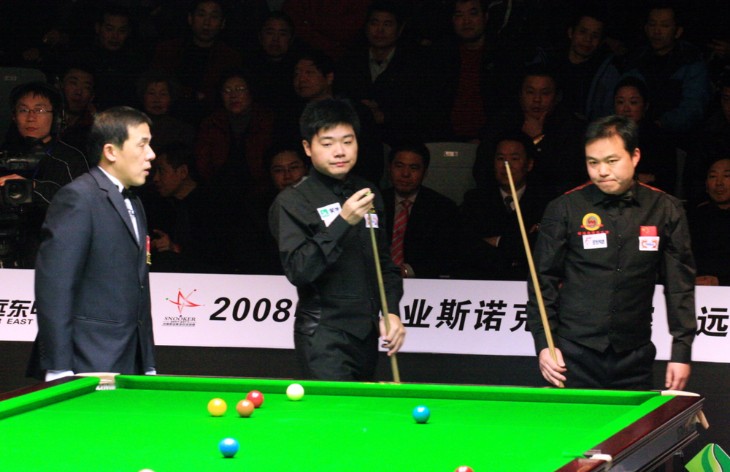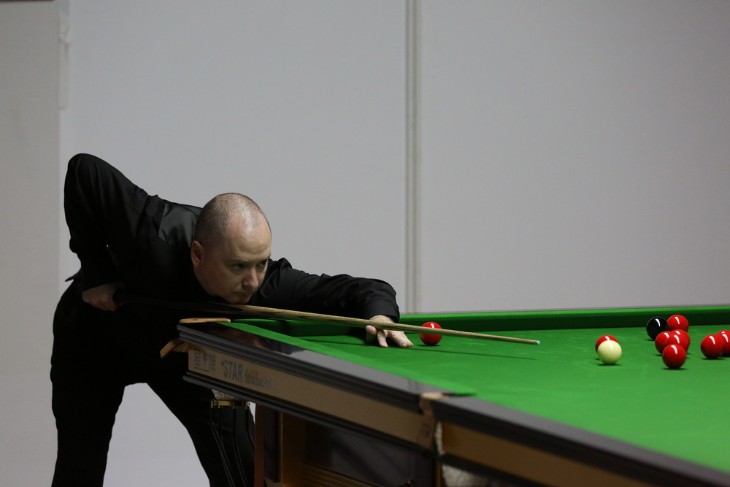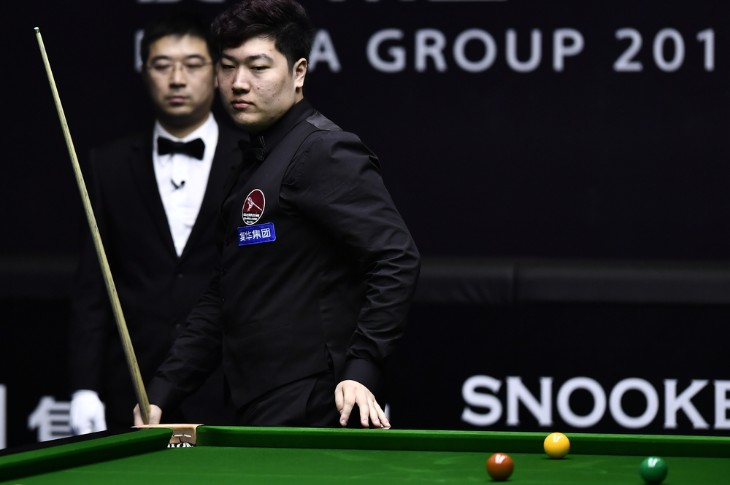- Influence of Tradition in Snooker Dress Code
- Dressing for the Part: Psychological Aspects
- Snooker's Image and Public Perception
- Comparing Attire in Snooker and Other Cue Sports
- The Role of Sponsorship in Snooker Fashion
- Dress Code Regulations in Professional Snooker
- Variations in Snooker Attire Across Different Countries
- The Evolution of Snooker Suits Over Time
- Conclusion
Influence of Tradition in Snooker Dress Code
Tradition plays a pivotal role in shaping the dress code in snooker. The sport's governing bodies, such as the World Professional Billiards and Snooker Association (WPBSA), have long emphasised the importance of maintaining certain sartorial standards. This emphasis on tradition is not only a nod to the sport's history but also a means of distinguishing snooker from other cue sports. While pool and billiards have adopted more relaxed dress codes over time, snooker has steadfastly maintained its formal attire, reinforcing its unique identity within the world of cue sports.
The insistence on traditional attire in snooker also serves to reinforce certain values associated with the sport. Respect, discipline, and professionalism are key elements that are symbolised through the wearing of suits. Players, by adhering to this dress code, demonstrate a commitment to the sport's ethos and an understanding of its heritage. This traditional approach to attire has also been instrumental in shaping public perception of snooker as a dignified and serious sport, differentiating it from its counterparts and elevating its status in the eyes of both enthusiasts and the general public.
Dressing for the Part: Psychological Aspects
The question of "why do snooker players wear suits" extends beyond mere tradition and into the realm of psychology. The act of dressing in formal attire for a snooker match is not just about adhering to rules or maintaining tradition; it also has significant psychological implications. Wearing a suit can instil a sense of seriousness and professionalism in the players. This psychological impact is not trivial; it fosters a mindset that is focused, disciplined, and respectful of the game and its competitors. The suit acts as a uniform that mentally prepares players for the challenge ahead, distinguishing the competitive environment of professional snooker from casual play.
Moreover, the formal attire contributes to a player's self-image and confidence. Dressing sharply in a suit can enhance a player's self-perception, potentially improving their performance. The psychology of dressing well is widely acknowledged in various fields, and snooker is no exception. The suit, therefore, is not just a requirement but a psychological tool that helps players enter a state of mental preparedness and confidence, crucial for high-level competition.
Snooker's Image and Public Perception
The image of snooker as a sport is closely tied to its dress code. The sight of players dressed in suits lends an air of sophistication and professionalism to the game, impacting how it is perceived by the public. This insistence on formal attire helps set snooker apart from other sports, where the dress code is more relaxed. It creates a distinctive identity for snooker, one that aligns with values of elegance, discipline, and professionalism. The suit becomes a symbol, not just of the player's respect for the game, but also of the game's status as a serious and esteemed sport.
This perception has implications for the sport's appeal to sponsors and broadcasters. The formal dress code enhances the sport's marketability, presenting it as a dignified and respectable competition. It attracts a certain type of audience and sponsor, often those who appreciate the traditional and formal aspects of the sport. In this context, the suit is more than just attire; it is a strategic element in marketing the sport, ensuring that snooker maintains its unique position in the world of professional sports.

Comparing Attire in Snooker and Other Cue Sports
The question of why snooker players wear suits becomes particularly intriguing when contrasted with the attire in other cue sports, such as pool or billiards. These sports, while similar in nature to snooker, often have a much more relaxed dress code. In pool, for example, players commonly wear casual or semi-formal attire, reflecting the sport's more laid-back and accessible image. This difference in dress codes is not just a matter of tradition; it reflects the distinct cultures and environments associated with each sport. Snooker, with its origins in British upper-class society, adopted a dress code that mirrored the formal attire of its early players. In contrast, pool, especially in the United States, evolved in a more casual setting, which is reflected in its players' attire.
The difference in dress codes also signifies the varied audiences and perceptions of these sports. Snooker, with its players in suits, appeals to a demographic that values tradition, formality, and a sense of occasion. This contrast with other cue sports highlights snooker's unique position in the cue sports realm, where formality and professionalism are at the forefront. The distinctive dress code of snooker not only sets it apart but also reinforces the traditional values that the sport embodies.
The Role of Sponsorship in Snooker Fashion
Sponsorship plays a significant role in the continued tradition of snooker players wearing suits. Sponsors often prefer associating their brands with a sport that exudes professionalism and class, qualities that are visually represented through formal attire. The suits worn by players provide a suitable backdrop for displaying sponsor logos and branding, which is crucial for the commercial aspects of the sport. This arrangement benefits both parties: players and tournaments receive financial support, while sponsors gain visibility in a prestigious context.
Furthermore, the formal attire in snooker creates opportunities for bespoke tailoring and fashion sponsorships. High-end clothing brands have an interest in being associated with a sport that aligns with their image of sophistication and elegance. This has led to partnerships where fashion brands provide custom suits for players, further elevating the sport's profile and appeal. Thus, the requirement for players to wear suits is not only a nod to tradition but also a strategic component in the commercial and aesthetic aspects of the sport, enhancing its appeal to sponsors and fashion-conscious audiences alike.
[promotion:1149]
Dress Code Regulations in Professional Snooker
Addressing the question of why snooker players wear suits, it is essential to consider the specific dress code regulations set by the sport's governing bodies. The World Professional Billiards and Snooker Association (WPBSA) and other regulatory organisations have clearly defined dress codes for professional matches. These rules stipulate that players must wear formal attire, typically comprising a suit, waistcoat, bow tie, and formal shoes. This dress code is strictly enforced during professional tournaments and is a condition of participation. Failure to comply with these regulations can result in penalties for the players, emphasizing the importance placed on maintaining a formal appearance.
The adherence to these dress code regulations is more than a matter of tradition; it is a fundamental aspect of professional snooker's identity. The formal attire requirement is seen as a respect for the game, its history, and its spectators. It instils a sense of occasion and professionalism in events, setting professional snooker apart from recreational play. This insistence on formal attire underlines the seriousness with which the sport is approached and is a key aspect in answering why snooker players wear suits.

Variations in Snooker Attire Across Different Countries
While the fundamental aspect of snooker attire remains the suit, there are interesting variations across different countries and cultures. Globally, snooker has embraced diverse cultural influences, which are sometimes reflected in the players' attire. For instance, in Asian countries where snooker has gained significant popularity, players often incorporate elements of their national dress or cultural symbols into their attire, adding a unique flair to the traditional suit. These variations, while subtle, add a level of diversity to the sport and highlight its international appeal.
However, even with these cultural variations, the core element of the suit remains consistent. This consistency is crucial in maintaining the sport's global image and ensuring that it is universally recognised and respected. The suit, therefore, serves as a unifying element in professional snooker, transcending geographical and cultural boundaries. This global adherence to a formal dress code is a testament to the sport's heritage and the universal respect for the tradition it upholds, further reinforcing the answer to why snooker players wear suits.
The Evolution of Snooker Suits Over Time
The evolution of snooker suits over time offers insights into the broader question of why snooker players wear suits. Initially, snooker attire mirrored the formal fashion of the times, with heavy wool suits and full-length trousers being the norm. As fashion trends evolved through the 20th century, so did snooker attire, albeit at a conservative pace. The suits became more tailored and fitted, reflecting changes in mainstream fashion while maintaining a formal and professional look. Fabrics also evolved, with lighter materials being used to offer players greater comfort without compromising on the formal aesthetic.
This evolution is significant as it demonstrates the sport's ability to adapt while maintaining its traditional roots. The modern snooker suit is a blend of tradition and contemporary style, offering a nod to the past while embracing the present. This balance is key to understanding why snooker players wear suits; it is a tradition that has evolved to stay relevant and respectful of the sport's heritage while also considering the comfort and preferences of current players.
Conclusion
In conclusion, the tradition of snooker players wearing suits is deeply rooted in the sport's history and culture. This practice is a nod to snooker's origins in the upper echelons of British society and has been maintained to preserve the game's dignity and formality. The suit symbolises the professionalism, discipline, and respect that are central to the sport, contributing to its unique identity and appeal. While the strict dress code has faced some challenges and evolutions over time, it remains a fundamental aspect of professional snooker.
For more information:
[promotion:1150]





 (1).webp)






.webp)















